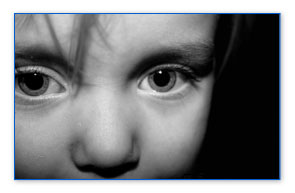 Note from CCHR: While the FDA and its Pediatric advisory panel sit around pondering if one antipsychotic drug is more likely to cause diabetes in children than another while continuing their stall tactic of “let’s study it some more ” routine, we’d like to point out the simple solution: Considering that antipsychotic drugs are already documented by international drug regulatory agencies to cause not only diabetes but obesity, psychosis, blood clots, heart problems, cardiac events, seizures, toxicity, confusion, coma and stroke (and that’s just in kids) as well as brain atrophy (meaning they actually shrink brains); considering there is no medical test to prove any child has a brain malfunction, chemical imbalance or any physical condition requiring the administration of these lethal drugs—and considering these drugs are literally killing kids that have nothing medically wrong with them in the first place— Do the job you are paid by U.S. Taxpayers to do and BAN their use on children. Period.
Note from CCHR: While the FDA and its Pediatric advisory panel sit around pondering if one antipsychotic drug is more likely to cause diabetes in children than another while continuing their stall tactic of “let’s study it some more ” routine, we’d like to point out the simple solution: Considering that antipsychotic drugs are already documented by international drug regulatory agencies to cause not only diabetes but obesity, psychosis, blood clots, heart problems, cardiac events, seizures, toxicity, confusion, coma and stroke (and that’s just in kids) as well as brain atrophy (meaning they actually shrink brains); considering there is no medical test to prove any child has a brain malfunction, chemical imbalance or any physical condition requiring the administration of these lethal drugs—and considering these drugs are literally killing kids that have nothing medically wrong with them in the first place— Do the job you are paid by U.S. Taxpayers to do and BAN their use on children. Period.
GAITHERSBURG, Maryland (Reuters) – U.S. pediatric health advisers on Thursday urged drug regulators to continue studying weight gain and other side-effects of antipsychotic drugs as they are increasingly taken by children.
Significant numbers of U.S. children are receiving drugs to tame aggression, attention deficit disorder and other mental problems, even though there is little conclusive data to show exactly how the medications work or whether they damage kids’ health.
Similar to the recommendations the panel has made in previous years, it voted 16-1 to support the U.S. Food and Drug Administration’s routine safety monitoring of the new generation of antipsychotics.
But the panel did so with a caveat that the agency specifically look at how to clarify the drugs’ labels to highlight concerns about their impact on children, namely the risks of weight gain and diabetes.
“There is serious concern that children may be at a higher risk for serious adverse effects and we just don’t have sufficient data to answer that question,” said Dr. Jonathan Mink, a child neurology expert from the University of Rochester Medical Center.
Dr. Jeffrey Wagener, a pediatric pulmonologist from the University of Colorado Medical School, was the one adviser to vote “no” out of concern that wouldn’t get regulators closer to dealing with the risks of using antipsychotics in children.
“I don’t see how the FDA is responding to the December 8, 2009 request by this committee in a thorough fashion,” he said. “It’s taken them two years to not respond to that that we need to be more than in the observational role.”
The FDA in the next month to six weeks will release a revised label for Abilify, a drug sold by Bristol-Myers Squibb Co and Otsuka Pharmaceutical and approved to treat schizophrenia in adolescents, bipolar disorder in children 10 to 17 years old and irritability associated with autism in those as young as six.
“We ask that with this upcoming revision that you carefully consider the language around pediatric use and adverse events,” said Dr. Geoffrey Rosenthal, the committee’s chair and director of Pediatric and Congenital Heart Center at the University of Maryland Medical Center.
Abilify’s new label will detail the drug’s latest clinical trials, warn of metabolic concerns and remind doctors to monitor weight and symptoms of diabetes in all patients, said Dr. Thomas Laughren, FDA’s psychiatry products chief. The pediatric section of the label would contain a reference to those warnings, he said..
Such revisions, which are already incorporated into Johnson & Johnson’s antipsychotic medication Invega Sustenna, are being considered for other similar drugs on a case by case basis, Laughren said.
The new generation of antipsychotic medications has raised a wave of concerns as they are increasingly being prescribed for a host of uses and for younger and younger patients, with little conclusive research addressing their impact on children and sometimes with little evidence they work.
Newer antipsychotics include J&J’s Risperdal, known generically as risperidone; Eli Lilly & Co’s Zyprexa or olanzapine; AstraZeneca’s Seroquel or quetiapine; and Abilify, known generically as aripiprazole.
U.S. researchers have found that the drugs’ use in children increased by 65 percent from 2002 to 2009, primarily through prescriptions for teenagers.
From fall 2009 to spring of this year, 1.9 million prescriptions of Abilify alone were dispensed to patients under 18, including even 875 prescriptions for toddlers younger than 2, according to FDA research.
Most commonly, the prescriptions were for bipolar disorder in teenagers and preschoolers, and for affective psychoses in children between the ages of seven and 12.
Advisers also voted unanimously to require the FDA to show them label revisions and report back in the next year or 18 months on progress in designing more studies of the drugs in children.
http://www.fox43.com/lifestyle/sns-rt-us-usa-fda-antipsychotictre78l77l-20110922,0,216106.story


SHARE YOUR STORY/COMMENT